Politics
Starmer thanks Sunak for hard work, commitment and decency
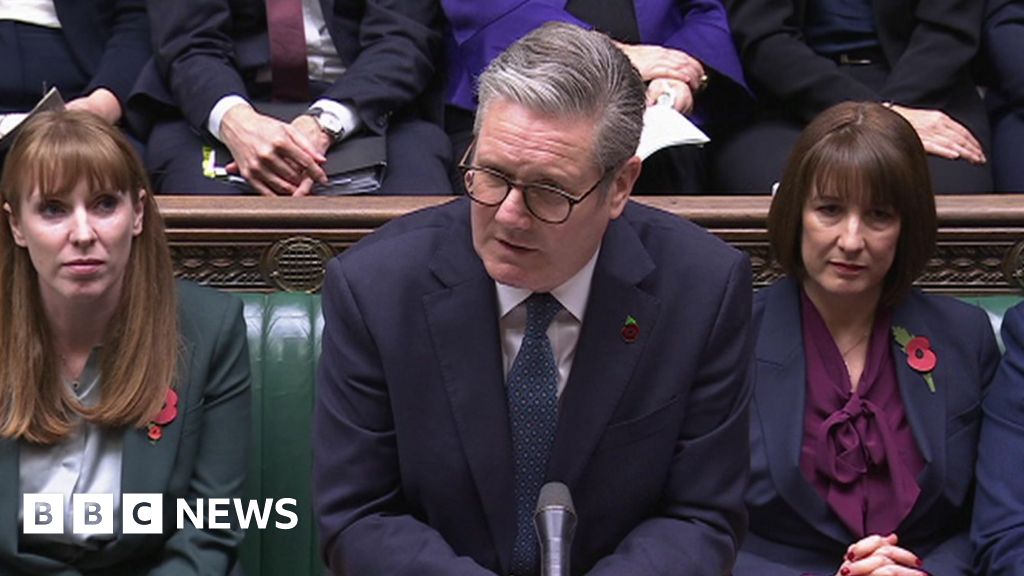
Prime Minister Sir Keir Starmer has thanked his predecessor Rishi Sunak “for his service” to the country, and wished his family well for the future.
The Speaker also mentioned that this is the last time Sunak would appear at PMQs, as a new Conservative Party leader is due to be selected on 2 November.
Politics
Stamp duty tax on second homes to rise

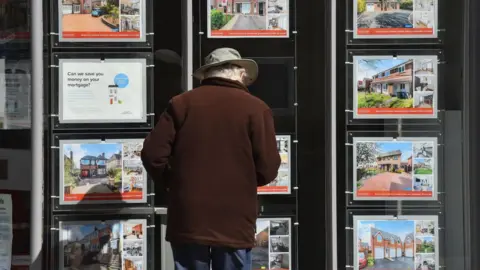 Getty Images
Getty ImagesThe rate of stamp duty paid by people buying a second home is to rise, Chancellor Rachel Reeves has announced in the Budget.
Stamp duty is a tax paid when buying property over a certain price in England and Northern Ireland.
People buying an additional property are already subject to a higher rate, and from Thursday this will rise from from an extra 3% to 5%.
Reeves said the move would “support over 130,000 additional transactions from people buying their first home, or moving home, over the next five years”.
However, analysts say the increase rate could affect landlords’ willingness to buy more properties.
Paul Johnson, director of the Institute for Fiscal Studies think tank, said renters would “pay part of the cost” of the increase in stamp duty for second-home buyers and landlords “as the supply of such properties falls”.
Ben Beadle, chief executive of the National Residential Landlords Association, said: “The chancellor has failed to heed the warnings of the Institute for Fiscal Studies that higher taxes on the rental market lead only to rents going up.
“What tenants needed was a Budget to boost the supply of new, high-quality rental housing. What we got is a recipe for less choice and higher rents.”
But Ben Twomey, chief executive of campaign group Generation Rent, said: “Renters who have been able to save a deposit to buy a home will get a boost from the increased stamp duty surcharge.
“The higher costs for investors will make it easier for first-time buyers to compete in the house sales market.”
Currently, buyers of homes worth less than £250,000 do not pay stamp duty. This was doubled from £125,000 under Liz Truss’s mini-Budget in September 2022.
The threshold is £425,000 for those buying their first property, with the level raised from £300,000 in the mini-Budget.
However, next March the thresholds are due to revert back to the lower levels set before the mini-Budget.
The current rates of stamp duty are:
- £0-£250,000 (£425,000 for first-time buyers) = 0%
- £250,00-£925,000 = 5%
- £925,001-£1.5m = 10%
- £1.5m+ = 12%
From Thursday, people buying a second home will pay an extra 5% on top of this.
Meanwhile, the Budget included a £500m boost in funding for the Affordable Homes Programme, which the government said would deliver up to 5,000 new social and affordable homes.
Reeves also confirmed the government would reduce Right to Buy discounts in a bid to increase the supply of council housing.
The Right to Buy scheme allows tenants renting council-owned homes to buy them at a discounted rate.
The chancellor said councils would also be able to keep 100% of the money raised from sales of housing so this could be reinvested into new supply.
Politics
Vaping tax and tobacco duty rises set out in Rachel Reeves’ Budget
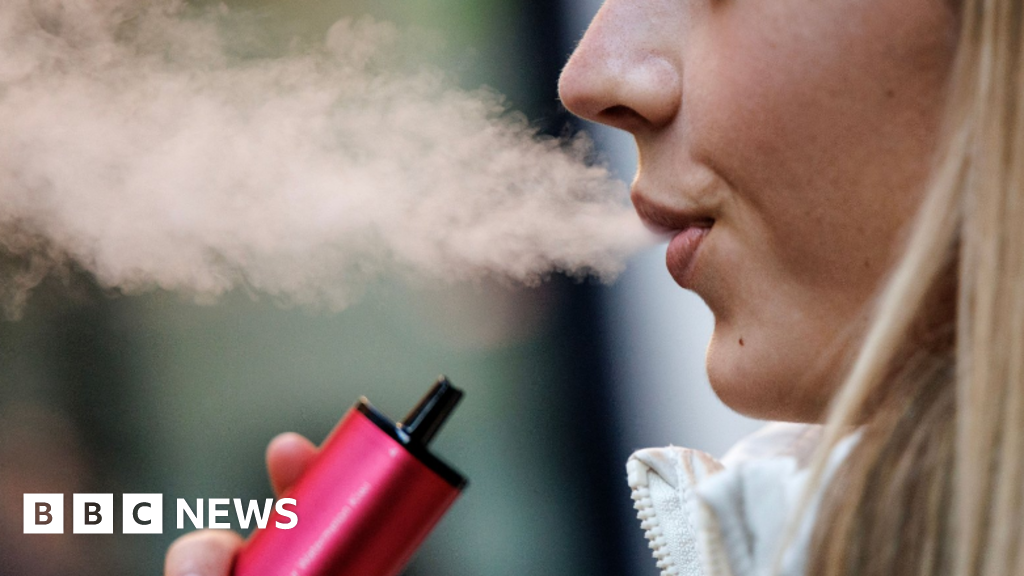
The cost of vaping and smoking will increase following tax rises announced in Chancellor Rachel Reeves’ Budget.
A new tax on vapes of £2.20 per 10ml of e-cigarette liquid will kick in from October 2026.
That will be accompanied by an equivalent increase of £2.20 per 100 cigarettes in tobacco duty to “maintain the financial incentive to switch from tobacco to vaping”.
Reeves also set out immediate above-inflation increases of 2% on tobacco and 10% for hand-rolled tobacco.
On alcohol duties, she said that, from February 2025, there would be a 1.7% reduction in draught beer duty, to shave “a penny off a pint in the pub”.
However, rates on non-draught products, such as wine and spirits, will rise by the higher RPI measure of inflation.
Defending the rise, the chancellor said “two-thirds of alcoholic drinks sold in pubs are served on draught”.
The UK Spirits Alliance (UKSA) called the hike a “kick in the teeth”, adding: “Today’s decision won’t stop thousands more pubs and distillers closing down.”
However, Katherine Severi of the Institute of Alcohol Studies welcomed the move saying it would “help narrow the widening gap in affordability between pub and supermarket alcohol”.
“There are both public health and economic reasons to move people back to drinking in pubs and not at home.”
In its last Budget before losing the election, the previous Conservative government said it wanted to introduce a vaping tax and set up a consultation on the changes.
The consultation said the tax aimed to make vaping “less accessible to young people and non-smokers while also raising revenue for funding vital public services like the NHS”.
It had proposed different levels of tax based on the amount of nicotine in the vaping liquid. However, Reeves has instead opted for a flat rate.
Head of the UK Vaping Industry Association John Dunne called the vape tax a “nonsensical move” that penalised people who used vapes as a method to give up smoking.
He said: “Some three million adults are former smokers thanks to vaping, which is strongly evidenced as the most effective way to quit conventional cigarettes, saving the NHS millions of pounds in treating patients with smoking related conditions.”
The new Labour government had already said it wanted to stop vapes being branded to appeal to children, and has announced a ban on single-use vapes, due to come into effect in England in June 2025.
Ministers have also pledged to continue plans, set out by former Prime Minister Rishi Sunak, to ban people born in or after 2009 from buying cigarettes.
In a measure aimed to encourage manufacturers to reduce sugar content in drinks, the Budget confirmed an increase to the Soft Drinks Industry Levy.
The existing exemption for milk-based drinks will be reviewed.
Politics
Budget unveils big taxes, big borrowing and big spending plans
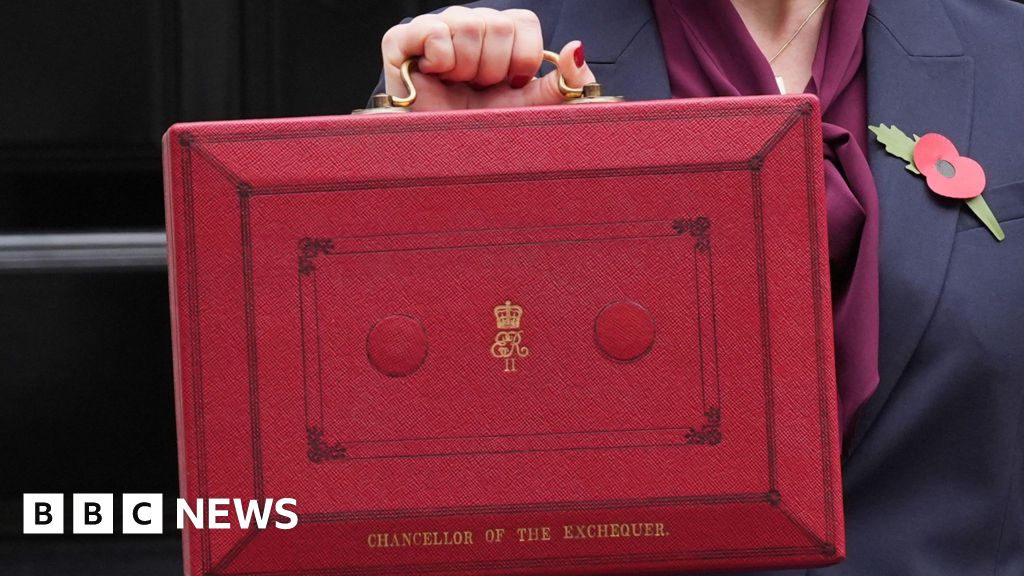
I said this morning this Budget would be big. And big is exactly what it is.
We got a sense of that very early on from the chancellor, when she said: “This Budget raises taxes by £40bn.”
To state the obvious, that is a massive amount of money.
The thrust of what we have heard is very much in line with what we reported in advance – with one or two tax rises suggested in some places that are not actually happening.
So, the thresholds at which levels of income tax and National Insurance contributions are paid, which are frozen until 2028, will be unfrozen then.
That’s the opposite of what was expected.
Frozen thresholds contribute towards what is known as “fiscal drag” and amount to big tax rises – where people can be hauled into paying a tax, or a higher rate of it, courtesy of inflation.
But it is worth remembering that Rachel Reeves could have unfrozen the thresholds before 2028 and chose not to, and could later choose to maintain the freeze.
The other tax rise many thought could happen but did not was fuel duty.
But put these two to one side – this is a massive tax raising budget.
Alongside it, where they will spend some of that money – on the NHS and schools in England, for instance.
Big taxes, big borrowing and big spending.
But also projected pretty anaemic growth and inflation above its 2% target.
There is one big question – will all this make enough difference that people think their lives are getting better?
Politics
Starmer slams Tory leader candidates for Southport comments
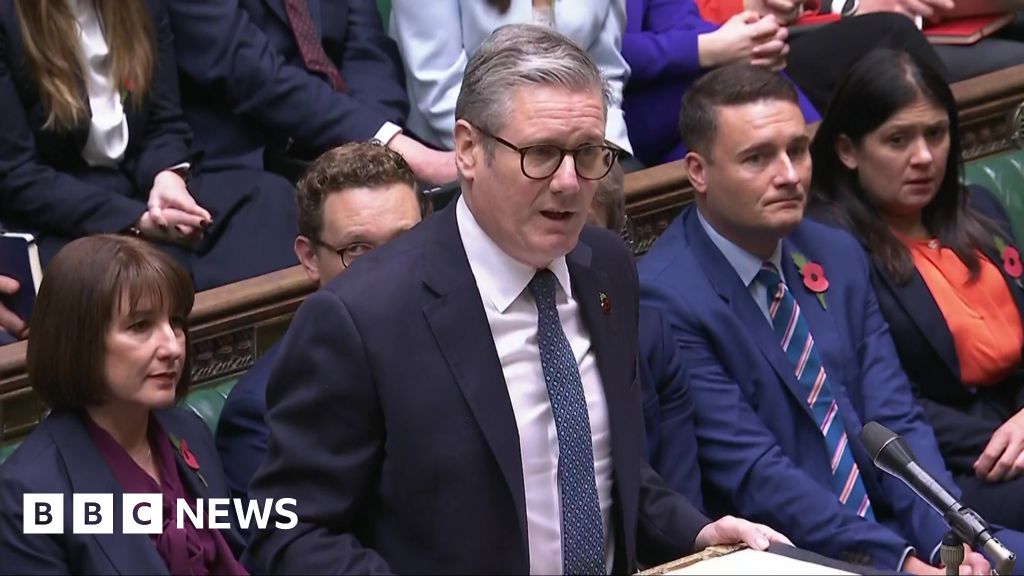
The prime minister has criticised both Conservative leadership candidates for casting doubt on the police and government’s response to the Southport attack that left three young girls dead.
Tory leadership hopeful Robert Jenrick has suggested information on the attack was “concealed”, while his rival Kemi Badenoch argued that the government, police and prosecutors “have questions to answer”.
This follows the revelation 18-year-old Axel Rudakubana, who is accused of murdering the three girls, was charged with two further offences – including one under the Terrorism Act.
Sir Keir warned MPs they “can either support the police in their difficult work” on the Southport case or “undermine” it.
During his weekly Prime Minister’s Questions session, Sir Keir told a packed House of Commons: “It is important police and prosecutors are able to do their difficult job.
“All of us have a choice to make, including those running to be Conservative leader, they can either support the police in their difficult task or they can undermine the police in their difficult task, and I know what side I am on.”
Badenoch was in the Commons to hear the comments.
Sir Keir was responding to a question from Reform UK’s deputy leader Richard Tice, who called for the police to be more open about investigations.
Reform UK leader Nigel Farage faced criticism after the Southport killings for questioning the police’s assessment of the attacks.
Following the revelations about the extra charges against Mr Rudakubana, Farage released a video claiming “perhaps I was right all along”.
On Wednesday, Mr Rudakubana appeared in court charged with production of the poison ricin and possession of a military study of the Al Qaeda training manual, an offence under terrorism legislation.
Counter Terrorism Police are not currently treating the Southport attack itself as a terrorist incident.
The teenager had already been charged with the murders of Bebe King, six, Elsie Dot Stancombe, seven, and nine-year-old Alice Dasilva Aguiar who died at a Taylor Swift-themed dance class on 29 July.
Following reports of the new charges, Jenrick told ITV News he wanted answers on “when the prime minister knew”.
“The state should not be lying to its own citizens,” he said.
Asked if he thought the state had lied, Jenrick said: “We don’t know the reason why this information has been concealed.
“Why has it taken months for the police to set out basic facts about this case that it is reasonable to believe were known within hours or days of this incident occurring?”
In a social media post Badenoch said there were “serious questions to be asked of the police, the [Crown Prosecution Service] and also of Keir Starmer’s response to the whole situation”.
She said: “Parliament is the right place for this to happen.
“While we must abide by the rules of contempt of court and not prejudice this case, it is important that there is appropriate scrutiny.”
The BBC understands senior figures in government first became aware of the possibility of new charges against the suspect in the Southport murders in the past few weeks.
A spokesperson for the prime minister said it was “not correct” to say the government had been involved in withholding facts from the public.
The CPS said it has taken time to bring the charges because this was a “lengthy and complex investigation”.
Ahead of PMQs, House of Commons Speaker Sir Lindsay Hoyle warned MPs of the risk of seriously prejudicing criminal proceedings by commenting on the investigation in the Commons.
While members might be frustrated at not being able to comment he said: “More importantly at the heart of this case are three young girls.
“We all went to see justice for them and others affected by this appalling incident.”
The day after the Southport attack, thousands attended a peaceful vigil in the town, but a separate protest later turned violent outside a mosque.
This sparked a wave of protests across many towns and cities in the following days, leading to violence and rioting, particularly against asylum centre hotels.
More than 1,000 people have been arrested, and hundreds have been charged and sentenced to jail.
Politics
Government aware of new Southport charges in past few weeks

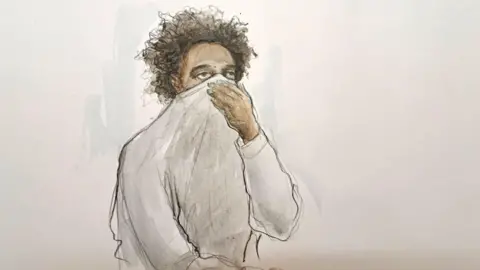 Helen Tipper
Helen TipperThe most senior figures in government first became aware of the possibility of new charges against the suspect in the Southport murders in the past few weeks, the BBC has been told.
A spokesperson for the prime minister said it was “not correct” to say the government had been involved in withholding facts from the public.
It comes after the two candidates for the Conservative leadership said the government had questions to answer about the new charges.
Axel Rudakubana, 18 – who is accused of murdering three young girls in Southport – is facing two further charges, including one under the terrorism act.
On Tuesday he was charged with production of a biological toxin contrary to Section 1 of the Biological Weapons Act 1974.
He has also been charged with possessing a PDF document of a kind likely to be useful to a person committing to or preparing an act of terrorism, contrary to Section 58 of the Terrorism Act 2000.
The teenager had already been charged with the murders of Bebe King, six, Elsie Dot Stancombe, seven, and nine-year-old Alice Dasilva Aguiar who died at a Taylor Swift-themed dance class on 29 July.
To charge someone under the Biological Weapons Act, the Crown Prosecution Service has to obtain consent from the government’s law officers – the attorney general or solicitor general.
The BBC has been told that in this case, consent was requested in recent weeks, and granted “within days”.
The teenager had been due in court in Liverpool for a pre-trial preparation hearing last Friday, 25 October.
That was postponed in order for all the charges to be dealt with together at Westminster Magistrates Court, where he will appear on Wednesday 30 October.
The charging decision and its timing were a matter for the CPS, a government spokesperson added.
It comes after the two candidates for the Conservative leadership raised questions about the new charges.
Robert Jenrick suggested that information was being “concealed” from the public.
“We were told for months that this was not a terror-related incident, and yet we have learnt that this individual, the suspect, was allegedly reading al-Qaeda manuals and had access to dangerous substances like ricin,” he said.
“Given the scale of public interest, I think it is an important question to be asked, why was this information not put into the public domain sooner? So I’m asking the public authorities and the prime minister, what did they know, when did they learn it, and why was the decision taken not to be more honest and transparent with the public.”
Meanwhile Kemi Badenoch has suggested there are “serious questions to be asked of the police, the CPS and also of Keir Starmer’s response”.
She has not elaborated on what those questions are, suggesting they should be asked in Parliament.
The police say it is “certainly not the case” that they have been keeping things from the public. It would be highly unusual for them to release details of a live police investigation.
The CPS suggest it has taken time to bring the charges because this was a “lengthy and complex investigation”.
 Merseyside Police
Merseyside PoliceThe new charges do not mean the Southport attacks are being treated as a terrorist incident.
Possessing a document that could be useful in preparing an act of terrorism is an entirely separate offence.
To be labelled as terrorism, the attack would have to be an attempt to advance a political, religious, racial or ideological cause. But it is not clear what possible motivation there might have been.
Authorities are urging people not to speculate, as it could jeopardise the entire court case.
Home Secretary Yvette Cooper said: “These additional charges will undoubtedly be distressing for people in Southport.
“The most important thing is to get justice for Bebe, Alice and Elsie and their heartbroken families, and all those affected by the attack and nobody should put that at risk.
“The police and prosecutors have an important job to do in their investigation, pursuing every avenue and taking the action they need to ahead of the trial.
“We must support them and ensure that everything possible is done to deliver justice.”
Politics
A big Budget – for tax, borrowing and spending
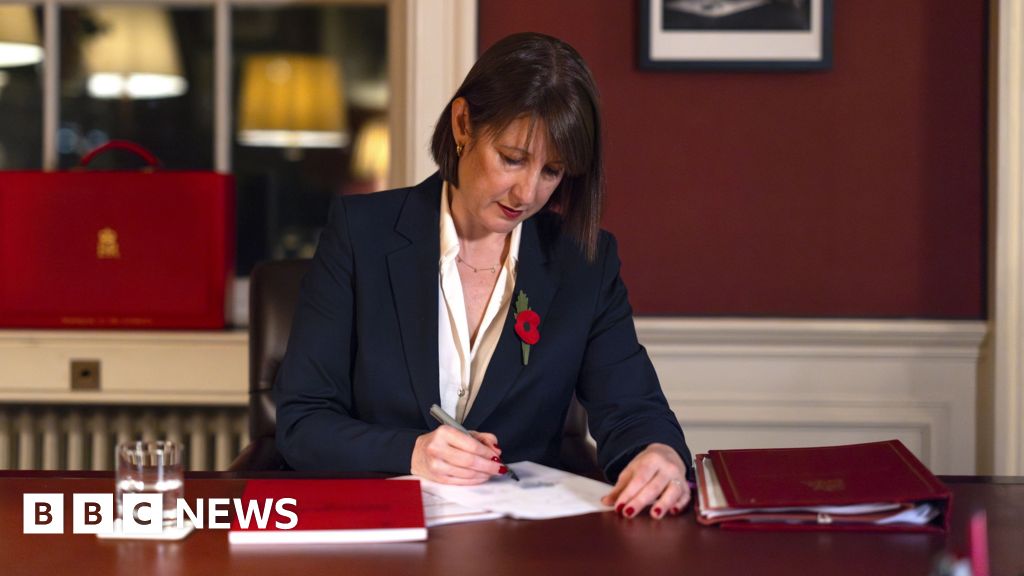
This will be a big Budget.
Big tax rises, big borrowing, big spending.
And big politically – because it will set the political landscape for the years to come.
Chancellor Rachel Reeves will promise that she will “invest, invest, invest” and will tell the Commons: “My belief in Britain burns brighter than ever.
“More pounds in people’s pockets. An NHS that is there when you need it.
“An economy that is growing, creating wealth and opportunity for all.”
Note the upbeat tone, after no shortage of the bleak from ministers recently.
The government is also emphasising that it is “protecting working people’s payslips” – which is code for National Insurance paid by employers, rather than employees, going up – one of the biggest rows of the last few weeks.
Expect Labour to try to use this Budget to attempt to open up a political dividing line with the Conservatives – rather similar to the one Gordon Brown tried a decade and a half ago – where they advocate what they call “investment”, ie spending, and contrast that with what they will label the “decline” offered by the Tories.
Conservative leader Rishi Sunak – on his last big day in the job before his successor is elected on Saturday – will, unsurprisingly, strongly criticise the Chancellor later.
“She’s called National Insurance a ‘jobs tax’ which ‘takes money out of people’s pockets’,” he says.
“And worst of all, she said the problem with National Insurance ‘is that it is a tax purely on people who go to work and those who employ them’.
“Far from protecting working people she would be raising literally the only major tax that specifically hits working people.”
It is expected the Liberal Democrats will focus on social care and the availability of GP and dentist appointments in their response to the Budget.
It is 14 years and seven months since a Labour Chancellor waved the Budget Red Box on the step of 11 Downing Street.
Wednesday 24 March 2010 was the day of Alistair Darling’s third Budget, delivered on the eve of an election campaign Labour would go on to lose.
Incidentally, what was the most expensive measure that day? A promise, costing £600m, to increase the Winter Fuel Allowance for another year.
A Labour idea that would continue throughout the coalition and Conservative years of power, only to be cancelled for the vast majority of pensioners when Labour won again back in July.
For 800 years, men have run the nation’s finances. There have been 110 Chancellors since Sir Richard Sackville was appointed in 1559 – a centuries’ long unbroken line of blokes – which includes Henry Bilson Legge (three times chancellor in the 18th century), and William Gladstone, who had four goes at it in the 19th century.
Until, that is, the appointment of Rachel Reeves.
The Conservatives may have managed the first three female prime ministers, with Labour’s record currently zero, but the first Budget from a female Chancellor of the Exchequer is a genuine moment of history.
So, what can we expect?
Well, the big stuff has been talked up in advance – through nods and winks, official briefings and unauthorised leaks.
There are tax rises, expected to include employer National Insurance and inheritance tax.
There is the change in the government’s self-imposed debt rules, so it can borrow a lot more.
There is the rise in the minimum wage.
There is money to rebuild schools in England.
And the plans for new equipment for the NHS, such as scanners and radiotherapy machines.
Expect a lot of talk from Rachel Reeves about what she will call “choices”.
Her team see it as a “once in a generation” Budget, where its scale, it is claimed, matches the scale of the challenge they face.
Which is code for the country’s in a mess and they think it’s going to cost a lot to fix it.
The extent to which it is – and whether billions of pounds more of taxpayers’ money are the solution – are the open questions.
-

 Science & Environment1 month ago
Science & Environment1 month agoHow to unsnarl a tangle of threads, according to physics
-

 Technology1 month ago
Technology1 month agoIs sharing your smartphone PIN part of a healthy relationship?
-

 Science & Environment1 month ago
Science & Environment1 month agoHyperelastic gel is one of the stretchiest materials known to science
-

 Science & Environment1 month ago
Science & Environment1 month ago‘Running of the bulls’ festival crowds move like charged particles
-

 Technology1 month ago
Technology1 month agoWould-be reality TV contestants ‘not looking real’
-

 Science & Environment1 month ago
Science & Environment1 month agoMaxwell’s demon charges quantum batteries inside of a quantum computer
-

 Science & Environment1 month ago
Science & Environment1 month agoX-rays reveal half-billion-year-old insect ancestor
-

 Science & Environment1 month ago
Science & Environment1 month agoSunlight-trapping device can generate temperatures over 1000°C
-

 Technology1 month ago
Technology1 month agoUkraine is using AI to manage the removal of Russian landmines
-

 Sport4 weeks ago
Sport4 weeks agoBoxing: World champion Nick Ball set for Liverpool homecoming against Ronny Rios
-

 Science & Environment1 month ago
Science & Environment1 month agoLiquid crystals could improve quantum communication devices
-

 Technology1 month ago
Technology1 month agoRussia is building ground-based kamikaze robots out of old hoverboards
-

 Technology4 weeks ago
Technology4 weeks agoGmail gets redesigned summary cards with more data & features
-

 Science & Environment1 month ago
Science & Environment1 month agoPhysicists have worked out how to melt any material
-

 Science & Environment1 month ago
Science & Environment1 month agoLaser helps turn an electron into a coil of mass and charge
-

 Science & Environment1 month ago
Science & Environment1 month agoQuantum ‘supersolid’ matter stirred using magnets
-

 Technology4 weeks ago
Technology4 weeks agoSamsung Passkeys will work with Samsung’s smart home devices
-

 Football4 weeks ago
Football4 weeks agoRangers & Celtic ready for first SWPL derby showdown
-

 TV4 weeks ago
TV4 weeks agoসারাদেশে দিনব্যাপী বৃষ্টির পূর্বাভাস; সমুদ্রবন্দরে ৩ নম্বর সংকেত | Weather Today | Jamuna TV
-

 MMA4 weeks ago
MMA4 weeks agoDana White’s Contender Series 74 recap, analysis, winner grades
-

 Science & Environment1 month ago
Science & Environment1 month agoA new kind of experiment at the Large Hadron Collider could unravel quantum reality
-

 News4 weeks ago
News4 weeks ago‘Blacks for Trump’ and Pennsylvania progressives play for undecided voters
-

 Sport4 weeks ago
Sport4 weeks agoAaron Ramsdale: Southampton goalkeeper left Arsenal for more game time
-

 News4 weeks ago
News4 weeks agoMassive blasts in Beirut after renewed Israeli air strikes
-

 News4 weeks ago
News4 weeks ago▶ Hamas Spent $1B on Tunnels Instead of Investing in a Future for Gaza’s People
-

 MMA3 weeks ago
MMA3 weeks ago‘Uncrowned queen’ Kayla Harrison tastes blood, wants UFC title run
-

 Technology4 weeks ago
Technology4 weeks agoEpic Games CEO Tim Sweeney renews blast at ‘gatekeeper’ platform owners
-

 News4 weeks ago
News4 weeks agoWoman who died of cancer ‘was misdiagnosed on phone call with GP’
-

 MMA4 weeks ago
MMA4 weeks agoPereira vs. Rountree prediction: Champ chases legend status
-

 News4 weeks ago
News4 weeks agoNavigating the News Void: Opportunities for Revitalization
-

 Technology1 month ago
Technology1 month agoWhy Machines Learn: A clever primer makes sense of what makes AI possible
-

 Science & Environment1 month ago
Science & Environment1 month agoWhy this is a golden age for life to thrive across the universe
-

 News1 month ago
News1 month agoRwanda restricts funeral sizes following outbreak
-

 Football4 weeks ago
Football4 weeks agoWhy does Prince William support Aston Villa?
-

 Technology1 month ago
Technology1 month agoMicrophone made of atom-thick graphene could be used in smartphones
-

 Technology4 weeks ago
Technology4 weeks agoMusk faces SEC questions over X takeover
-

 Business4 weeks ago
Business4 weeks agoWhen to tip and when not to tip
-

 Sport4 weeks ago
Sport4 weeks agoWales fall to second loss of WXV against Italy
-

 Womens Workouts1 month ago
Womens Workouts1 month ago3 Day Full Body Women’s Dumbbell Only Workout
-

 Science & Environment1 month ago
Science & Environment1 month agoITER: Is the world’s biggest fusion experiment dead after new delay to 2035?
-

 News1 month ago
News1 month ago▶️ Hamas in the West Bank: Rising Support and Deadly Attacks You Might Not Know About
-
Business4 weeks ago
DoJ accuses Donald Trump of ‘private criminal effort’ to overturn 2020 election
-

 News4 weeks ago
News4 weeks agoCornell is about to deport a student over Palestine activism
-

 Technology4 weeks ago
Technology4 weeks agoMicrosoft just dropped Drasi, and it could change how we handle big data
-

 Sport4 weeks ago
Sport4 weeks agoChina Open: Carlos Alcaraz recovers to beat Jannik Sinner in dramatic final
-

 Technology4 weeks ago
Technology4 weeks agoCheck, Remote, and Gusto discuss the future of work at Disrupt 2024
-

 MMA4 weeks ago
MMA4 weeks ago‘I was fighting on automatic pilot’ at UFC 306
-

 Sport4 weeks ago
Sport4 weeks ago2024 ICC Women’s T20 World Cup: Pakistan beat Sri Lanka
-

 MMA4 weeks ago
MMA4 weeks agoKayla Harrison gets involved in nasty war of words with Julianna Pena and Ketlen Vieira
-

 Money4 weeks ago
Money4 weeks agoWetherspoons issues update on closures – see the full list of five still at risk and 26 gone for good
-

 Sport4 weeks ago
Sport4 weeks agoMan City ask for Premier League season to be DELAYED as Pep Guardiola escalates fixture pile-up row
-

 Science & Environment1 month ago
Science & Environment1 month agoQuantum forces used to automatically assemble tiny device
-

 Science & Environment1 month ago
Science & Environment1 month agoA slight curve helps rocks make the biggest splash
-

 Science & Environment1 month ago
Science & Environment1 month agoNuclear fusion experiment overcomes two key operating hurdles
-

 Technology1 month ago
Technology1 month agoMeta has a major opportunity to win the AI hardware race
-

 MMA3 weeks ago
MMA3 weeks ago‘Dirt decision’: Conor McGregor, pros react to Jose Aldo’s razor-thin loss at UFC 307
-
Business4 weeks ago
how UniCredit built its Commerzbank stake
-

 News4 weeks ago
News4 weeks agoGerman Car Company Declares Bankruptcy – 200 Employees Lose Their Jobs
-

 Technology4 weeks ago
Technology4 weeks agoTexas is suing TikTok for allegedly violating its new child privacy law
-

 MMA4 weeks ago
MMA4 weeks agoKetlen Vieira vs. Kayla Harrison pick, start time, odds: UFC 307
-

 Sport4 weeks ago
Sport4 weeks agoCoco Gauff stages superb comeback to reach China Open final
-
Business4 weeks ago
Bank of England warns of ‘future stress’ from hedge fund bets against US Treasuries
-

 Sport4 weeks ago
Sport4 weeks agoSturm Graz: How Austrians ended Red Bull’s title dominance
-

 News4 weeks ago
News4 weeks agoHull KR 10-8 Warrington Wolves – Robins reach first Super League Grand Final
-

 Sport4 weeks ago
Sport4 weeks agoPremiership Women’s Rugby: Exeter Chiefs boss unhappy with WXV clash
-

 Entertainment4 weeks ago
Entertainment4 weeks agoNew documentary explores actor Christopher Reeve’s life and legacy
-

 Science & Environment1 month ago
Science & Environment1 month agoNerve fibres in the brain could generate quantum entanglement
-

 Science & Environment1 month ago
Science & Environment1 month agoTime travel sci-fi novel is a rip-roaringly good thought experiment
-

 Business1 month ago
Business1 month agoStocks Tumble in Japan After Party’s Election of New Prime Minister
-

 Business4 weeks ago
Business4 weeks agoWater companies ‘failing to address customers’ concerns’
-
Business4 weeks ago
Sterling slides after Bailey says BoE could be ‘a bit more aggressive’ on rates
-

 Football4 weeks ago
Football4 weeks ago'Rangers outclassed and outplayed as Hearts stop rot'
-

 Technology4 weeks ago
Technology4 weeks agoOpenAI secured more billions, but there’s still capital left for other startups
-

 News4 weeks ago
News4 weeks agoFamily plans to honor hurricane victim using logs from fallen tree that killed him
-
Business4 weeks ago
The search for Japan’s ‘lost’ art
-

 Technology4 weeks ago
Technology4 weeks agoIf you’ve ever considered smart glasses, this Amazon deal is for you
-

 Technology4 weeks ago
Technology4 weeks agoThis AI video generator can melt, crush, blow up, or turn anything into cake
-

 Technology4 weeks ago
Technology4 weeks agoThe best budget robot vacuums for 2024
-

 News1 month ago
News1 month ago▶️ Media Bias: How They Spin Attack on Hezbollah and Ignore the Reality
-

 Science & Environment1 month ago
Science & Environment1 month agoHow to wrap your mind around the real multiverse
-

 Business4 weeks ago
Business4 weeks agoChancellor Rachel Reeves says she needs to raise £20bn. How might she do it?
-

 MMA4 weeks ago
MMA4 weeks agoJulianna Peña trashes Raquel Pennington’s behavior as champ
-

 Technology4 weeks ago
Technology4 weeks agoJ.B. Hunt and UP.Labs launch venture lab to build logistics startups
-

 Technology4 weeks ago
Technology4 weeks agoSingleStore’s BryteFlow acquisition targets data integration
-
Business4 weeks ago
Head of UK Competition Appeal Tribunal to step down after rebuke for serious misconduct
-

 Technology4 weeks ago
Technology4 weeks agoLG C4 OLED smart TVs hit record-low prices ahead of Prime Day
-

 Technology4 weeks ago
Technology4 weeks agoThe best shows on Max (formerly HBO Max) right now
-

 Sport4 weeks ago
Sport4 weeks agoWXV1: Canada 21-8 Ireland – Hosts make it two wins from two
-

 Sport1 month ago
Sport1 month agoWorld’s sexiest referee Claudia Romani shows off incredible figure in animal print bikini on South Beach
-

 Technology4 weeks ago
Technology4 weeks agoApple iPhone 16 Plus vs Samsung Galaxy S24+
-

 Business4 weeks ago
Business4 weeks agoStark difference in UK and Ireland’s budgets
-

 Money4 weeks ago
Money4 weeks agoPub selling Britain’s ‘CHEAPEST’ pints for just £2.60 – but you’ll have to follow super-strict rules to get in
-
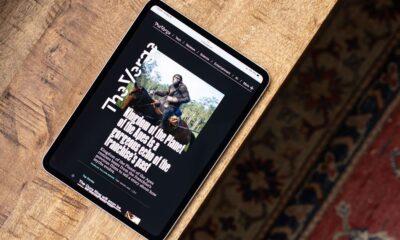
 Technology4 weeks ago
Technology4 weeks agoBest iPad deals for October 2024
-
Politics4 weeks ago
Rosie Duffield’s savage departure raises difficult questions for Keir Starmer. He’d be foolish to ignore them | Gaby Hinsliff
-

 Health & fitness4 weeks ago
Health & fitness4 weeks agoNHS surgeon who couldn’t find his scalpel cut patient’s chest open with the penknife he used to slice up his lunch
-

 MMA4 weeks ago
MMA4 weeks agoUFC 307 preview show: Will Alex Pereira’s wild ride continue, or does Khalil Rountree shock the world?
-
Business4 weeks ago
Champagne days for F1
-

 MMA4 weeks ago
MMA4 weeks agoPereira vs. Rountree preview show live stream
-

 Entertainment4 weeks ago
Entertainment4 weeks agoBruce Springsteen endorses Harris, calls Trump “most dangerous candidate for president in my lifetime”
-

 Football4 weeks ago
Football4 weeks agoSimo Valakari: New St Johnstone boss says Scotland special in his heart


You must be logged in to post a comment Login